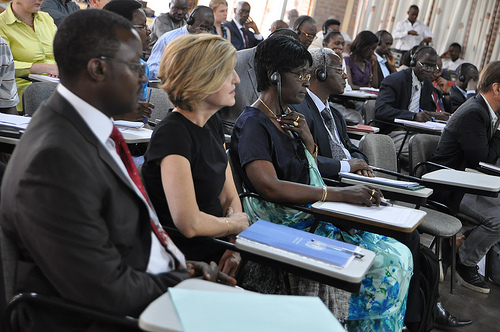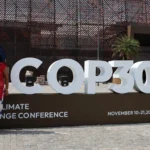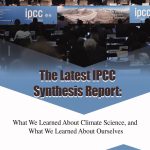QUNO works to foster enhanced trust and understanding in international negotiations to promote ambitious and fair global action to address climate change and related planetary crises.
QUNO has been involved with the international climate change negotiations at the United Nations Framework Convention on Climate Change (UNFCCC) since 2012. In the highly political space of the UNFCCC, we offer off-the-record quiet diplomacy discussions for climate negotiators. These discussions aim to build communication, understanding and trust between a diverse group of countries on issues sensitive to the negotiations at that time. Our presence in this space is continuously evolving in response to the needs of the negotiations.
QUNO is actively engaged in monitoring the work of the Subsidiary Bodies within the UNFCCC where, as members of the Research and Non-governmental Organisations constituency (RINGO), we observe the UNFCCC Committees, including the Katowice Committee of Experts (Response Measures), Loss and Damage, and the Facilitative Working Group of the Local Communities and Indigenous Peoples Platform. Here, we focus on the human and nature impact of decisions made and advocate for rights-based, urgent and ambitious climate action and finance to limit global temperature rise to 1.5°C above industrial levels.
We are also the only independent faith-based accredited observer at the Intergovernmental Panel on Climate Change (IPCC) and are expert reviewers of the IPCC reports. Our work there is twofold. We support climate research for urgent, equitable and transformative climate policy, which promotes sustainable and just economic, energy, agricultural systems, and behaviour change to transform root causes of climate change driven by human activity. For examples of our interventions in IPCC approval sessions, please click the following links: AR6 Physical Science, AR6 Impacts, Adaptation, and Vulnerability, AR6 Mitigation and AR6 Synthesis Report. Secondly, we develop publications which communicate these critical IPCC climate findings to a range of audiences, including diplomats, UN colleagues, climate activists and the general public. For an example of this work, please see the article ‘The Latest IPCC Synthesis Report: What We Learned About Climate Science, and What We Learned About Ourselves’ by Lindsey Fielder Cook.
A 4-minute video explaining our IPCC work (link)





